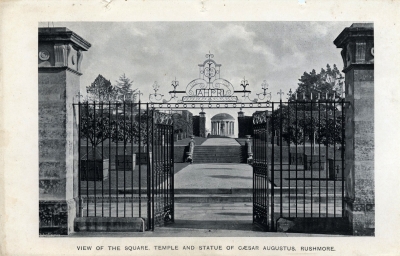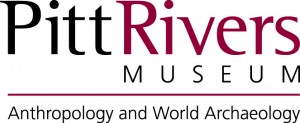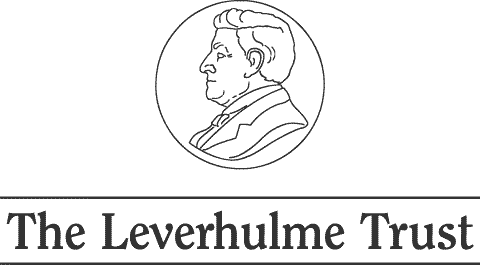Bowden suggests that Pitt-Rivers 'considered purely social activities to be frivilous' but I would argue that it is certain that he and his wife both enjoyed very active social lives.
Because there is a dearth of letters to or from Pitt-Rivers other than those held in the Salisbury and South Wiltshire Museum [S&SWM], it is hard to essay the extent of the Pitt-Riverses' social life before 1880. They are known to have visited, each year, various members of their own families included extended stays with their in-laws, the Stanleys, in Alderley in Cheshire and holidays in North Wales with other Stanley relatives. Pitt-Rivers' Army life must, to a degree, have interfered with his social life early on (although the nineteenth century army habit of extended leave will have minimised that effect) but residing in London ensured that they not only took part in the usual aristocratic 'Season' events but also met colleagues and friends at learned society meetings, and other events. Pitt-Rivers and his wife are known, for example, to have attended seances in the middle of the century.
However, it is clear from the letters that form the bulk of the surviving Pitt-Rivers correspondence, those held by S&SWM, that after 1880 Pitt-Rivers was a hospitable man, inviting many of his colleagues and peers to visit him at Rushmore. Even when ill-health might have been expected to curtail invitations to visitors in the 1890s he still issued invitations and received letters thanking him for his hospitality.
One of the fuller letters thanking him for his hospitality says:
I ought to have written sooner to tell you how much I enjoyed my visit to Rushmore. You & Mrs Pitt Rivers made me feel so thoroughly at home, which, after all, is the true pleasure of a visit ... I enjoyed seeing the diggings so much, & should be very glad to hear that have found something interesting & valuable ... [L2569 S&SWM PR papers]
Another visitor, Henry Ling Roth (1855-1925), an English anthropologist, and then a business man based in Halifax, later honorary curator of the Bankfield Museum from 1900, Halifax, wrote on 20 August 1898 asking for permission to visit the Farnham Museum whilst Roth was on his way to the British Association annual meeting in Bristol. [L2185 S&SWM PR papers] Pitt-Rivers promptly invited him to visit the museum and also to take lunch at Rushmore. In return Roth suggested exchanging '3 earthenware pots made by Arowaks I brought [them] back with me in 1875. One is broken & they are not much to look at', he wanted copies of Pitt-Rivers' publications in exchange. [L2192 S&SWM PR papers] In the event, Roth's visit coincided with Pitt-Rivers (unexplained) absence and Mrs Pitt-Rivers looked after him. [L2215 S&SWM PR papers]
Sometimes people invited themselves; William Whitaker from Southampton wrote in August 1895 asking if he could stay for a day or so with Pitt-Rivers at the end of the month. [see L1348, S&SWM PR papers] and Harry Howorth (a fellow collector from London), suggests:
'It is so long since I have seen you and had the delight of a talk with you ... I wonder if I might be impudent enough to suggest coming to you from Saturday till Monday. My wife is coming to Herefordshire with the boys and I thought that if you were at home and would not be bored I should much like to come.' [L1679 S&SWM PR papers, letter dated 2.11.1896]
Another person who was invited, but changed (and lengthened) the stay to suit himself was Percy Wyndham who staying in late August 1896 in order to play on Pitt-Rivers' new golf course at Rushmore [see L1620 S&SWM PR papers]. Percy Scawen Wyndham (1835-1911) was a Conservative politician. He owned 'Clouds' a famous house in East Knoyle, Wiltshire designed by Philip Webb who also undertook some alterations to Rushmore. He proposed staying with Pitt-Rivers for 3 or 4 days. In 1896 Pitt-Rivers had recently established the golf course. It is not clear what purpose he expected it to be used for, as there are quite a few letters from golfers seeking permission to use it so it was not open to the public. The golf course still exists, see here. As an interesting aside, Wyndham tells Pitt-Rivers in the above letter that John Lubbock, his son-in-law and eminent antiquarian, had recently taken up golf.
This was the period when family, friends and potential friends were invited to stay for at least the 'long weekend' (from Friday until Monday). According to the OED, it seems clear that the term 'week-end' began to be regularly used in the fourth quarter of the nineteenth century. This is a reflection of the growing percentage of the upper and middle classes who were forced to work for someone else during this period and therefore needed determined days off work, although their working week was probably considerably shorter than the vast majority of English workers who were lucky to have Saturday afternoon and Sunday off. In 1879 Notes and Queries [Ser.v.XII 428/2, quoted by OED] reported that in Staffordshire 'if a person leaves home at the end of his week's work on the Saturday afternoon to spend the evening of Saturday and the following Sunday with friends at a distance, he is said to be spending his week-end at So-and-so.' Given that this is in Notes and Queries, it suggests that the term 'weekend' was fairly unusual. However by 1892 The Times on 18 March was using it straighforwardly, suggesting it had become commonplace: 'They had evidently taken the house for week-ends'. It is for the 1890s that we have some idea of just how many people the Pitt-Rivers' invited to stay in a year (a lot), and how much Rushmore was the setting for the majority of their social life by that time, presumably because they spent less time at their London home as they grew older.
Of course it is impossible at this distance to be sure how pleasurable these visits were as mere politeness would have ensured fulsome 'bread-and-butter' letters of thanks * but the impression given by the cumulative letters is that most people did enjoy their stay at Rushmore and were happy to return. Whilst it is clear that a great deal of entertaining was carried out of people of like interests to Pitt-Rivers this is true for most people. If one entertains regularly it is nice to ensure that ones' companions are similarly-interested, and congenial guests.
The correspondence includes many letters thanking him for 'delightful' stays, or reluctantly turning down invitations as with the following:
'You are very kind to ask me, but I could not come now, being barely convalescent from bad influenza. Perhaps I may be persuaded to propose myself at some future time, taking the chance of yr being able to have me' [Francis Galton, writing to Pitt Rivers on 24 March 1895, L1217 S&SWM PR papers]'
It is clear from Conway's account here, that he stayed with Pitt-Rivers on one visit with a number of other guests including Herbert Spencer (Pitt-Rivers' evolutionary forebear), Sir John Evans, Sir Francis Galton (obviously a repeat visitor) and Sir John Lubbock (his son-in-law, but also his peer). Tylor is also known to have stayed with him, but it is clear that the Pitt-Riverses entertained many guests from widely different strata of society (for example from Mr Moule, the curator of Dorchester County Museum, see here) to members of the Establishment like Arthur Gordon, see here [L229 and L1102 S&SWM PR papers refer]
Pitt-Rivers also welcomed day visitors like Mr and Mrs Flinders Petrie, read an account of their visit here and Charles Gatty of the Liverpool Mayer Museum, see here. A Dr and Mrs Sturge from Bristol wrote to Pitt-Rivers in September 1895 enclosing a letter of introduction from Canon Greenwell and requesting to be allowed to visit the museum, Pitt-Rivers by return invited them to come for lunch at Rushmore after they had visited the museum. [see L1386 and L1388 S&SWM PR papers]
These visits seem to have been very enjoyable and memorable as people often comment on them in their other letters to him. An example might be a letter written by Geraldine Webb in May 1896:
I also send you a hat from La Palma the only island where it is now worn. I did not go to the island myself but got it for you from the Grand Canary - however, it is genuine. I daresay these things will be of no use really to you, but at anyrate they will show you that I have not forgotten that very delightful day I spent at Rushmore, when you were so very kind to me, explaining &c. since then we had Professor Dawkins staying with us, & together we sang your praises [L1564, S&SWM PR papers]
Geraldine Webb seems to have visited the Museum or else seem parts of the General's collection at Rushmore. She was the daughter of the owner of Newstead Abbey where she designed the Spanish garden. She was aged 35 when she wrote this letter.
Rushmore was a commodious house, built to allow lavish entertaining with a large number of reception rooms and bedrooms, and outdoor gardens, stables and menageries to visit as well as Larmer Tree Gardens and King John's House.
Pitt-Rivers also visited friends and family, and occasionally stayed with people he knew less well. L1369 is a letter from John D. Cobbold of Holy Wells, Ipswich inviting Pitt-Rivers to stay with him and his wife during the British Association meeting in September 1895, it is clear from the letter that though Cobbold extends an invitation he does not know him well as he addresses him as 'Dear Sir'. There are other letters in the S&SWM Pitt-Rivers papers in like vein.
Pitt-Rivers' even arranged social events as celebrations. For example it is clear from at least one letter that a 70th birthday party was organized for him on 14 April 1897. The Alvediston clergyman, C.O. Trew wrote to him on 7 April 1897 having had to decline an invitation to the party due to ill-health:
'... I feel bound to decline your most kind invitation to your 70th birthday. You have my very heartiest good wishes, & it is a most sincere disappointment to me that I shall be unable to offer my congratulations in person. Had it fallen to my good fortune to have proposed your health I should have tried to do justice to the theme & the occasion. [L1785 S&SWM PR papers]
Sadly another letter from the same collection [L1792] suggests that the 70th birthday dinner, which went ahead, was not attended by the General (and birthday boy): 'We regretted that you were prevented from being present at the dinner by illness ...'.
* Bread-and-butter letters: letters of thanks for hospitality, according to the OED, originally North American, but in use by the turn of the nineteenth century.
AP, June 2011.



